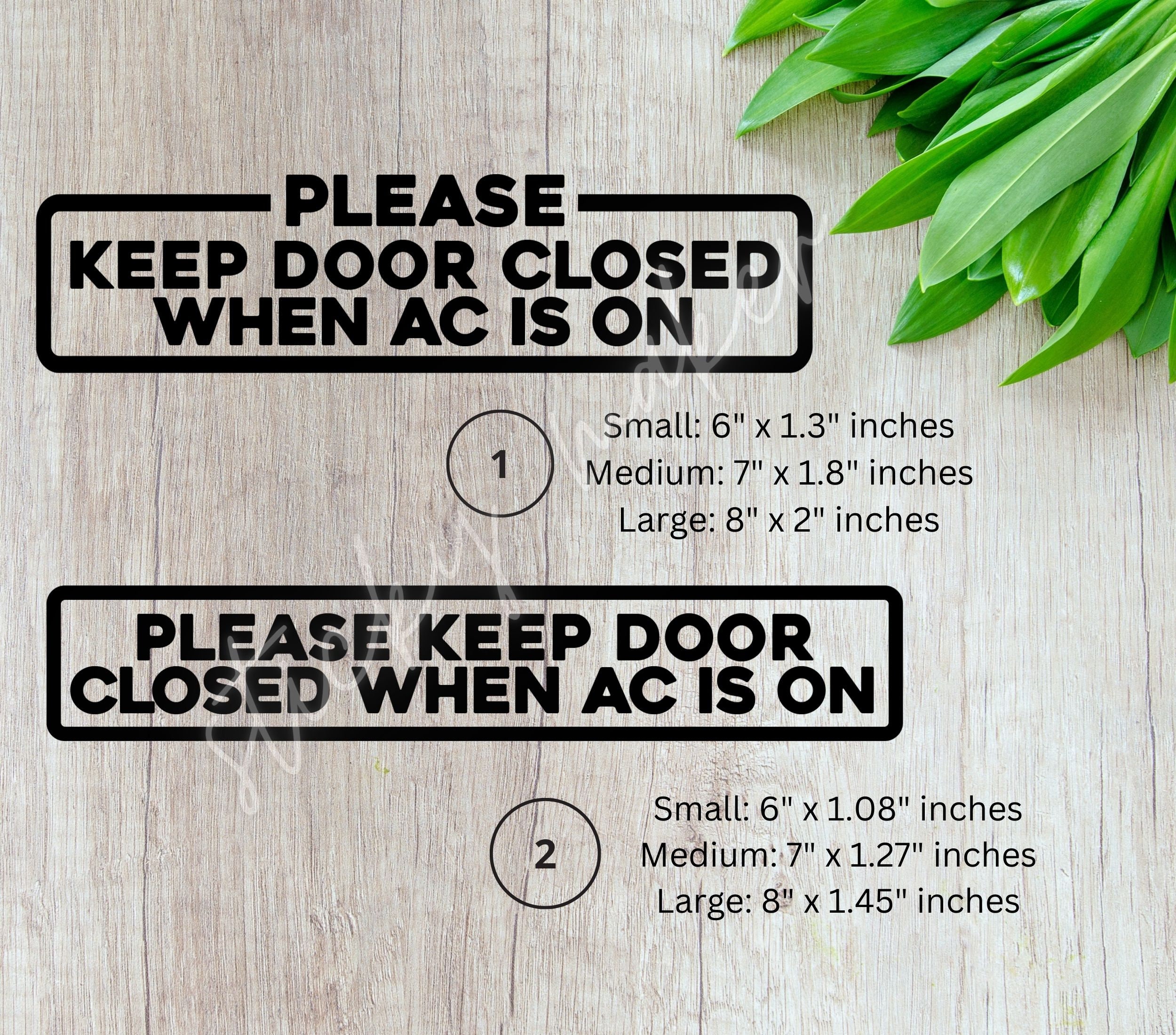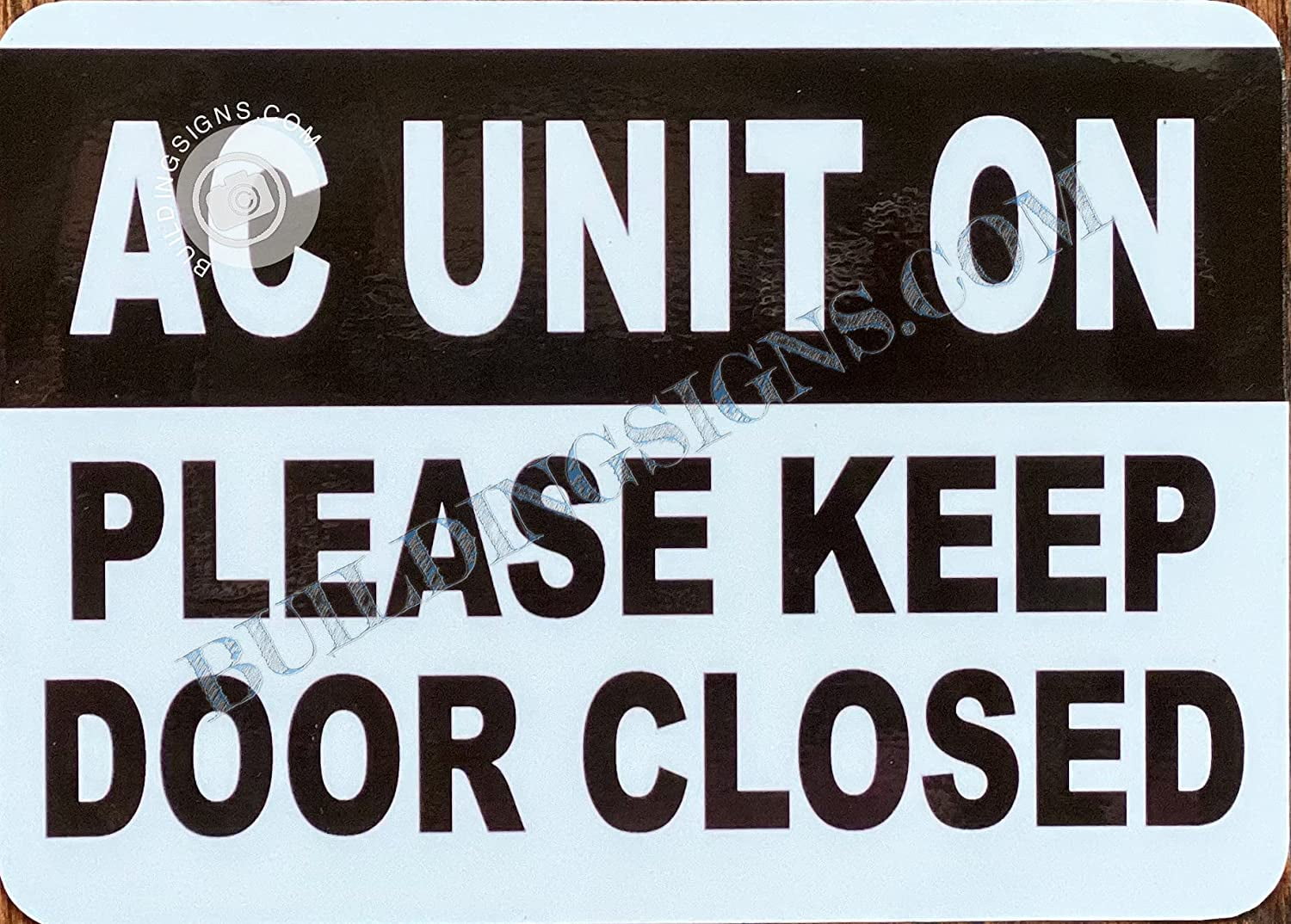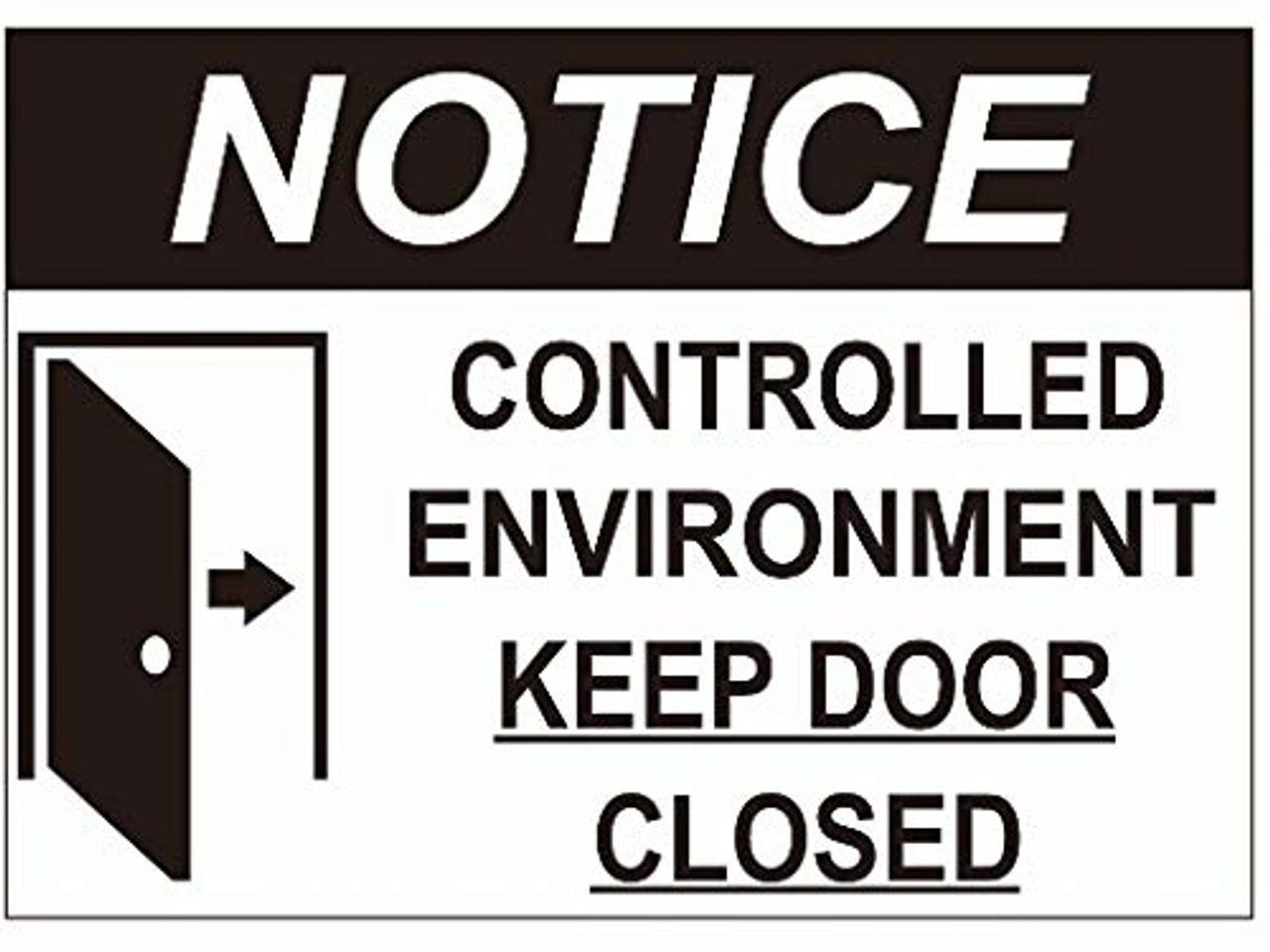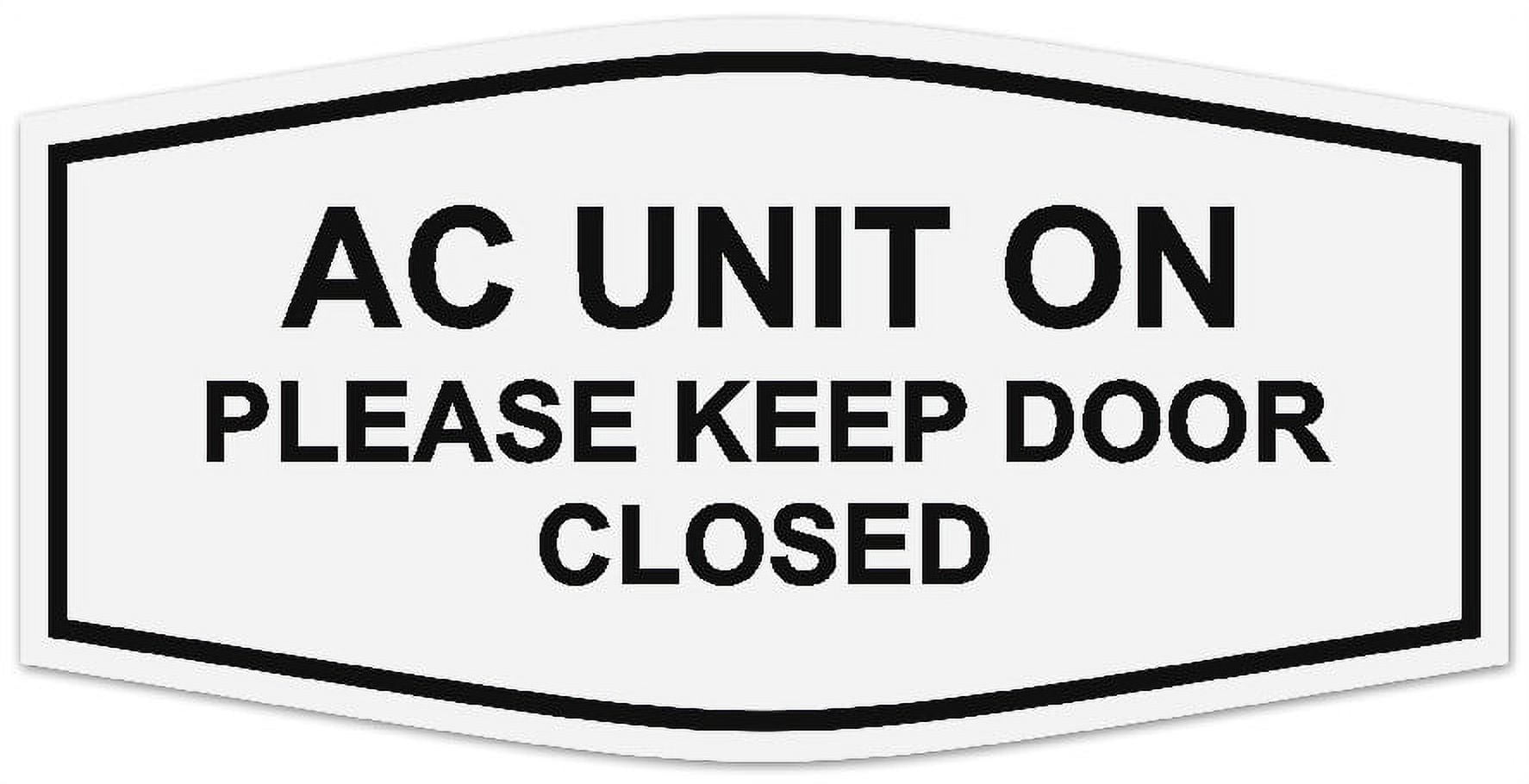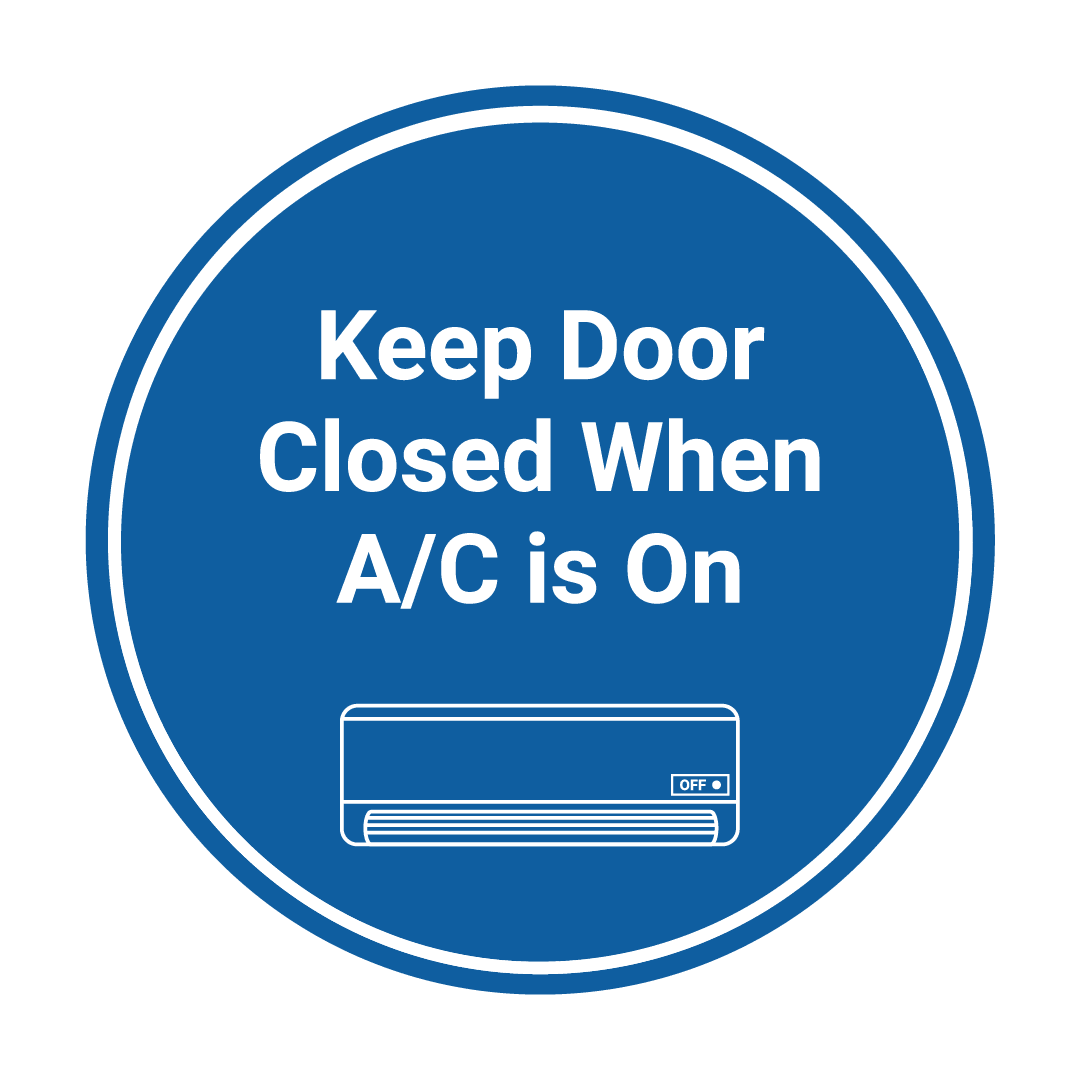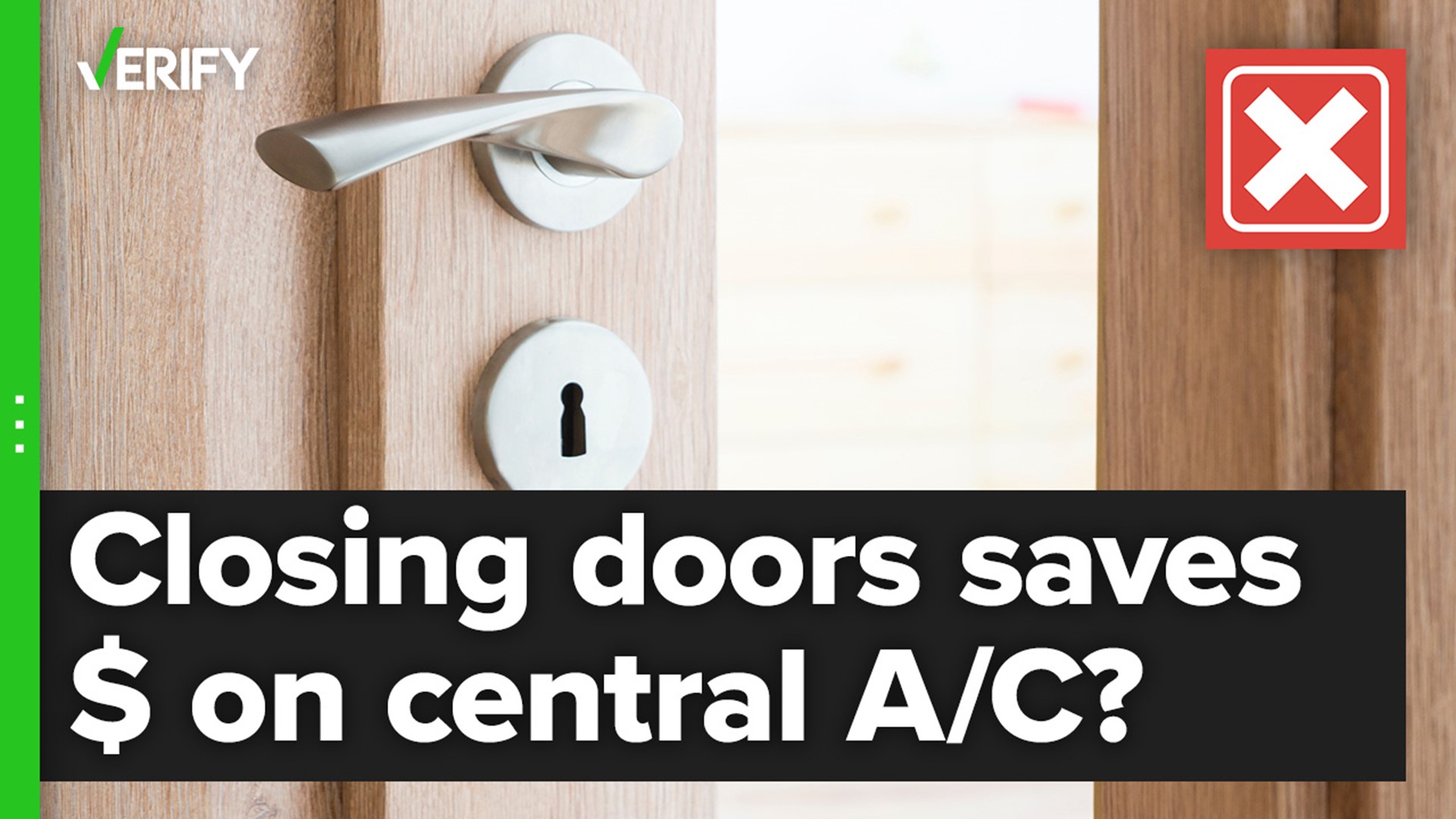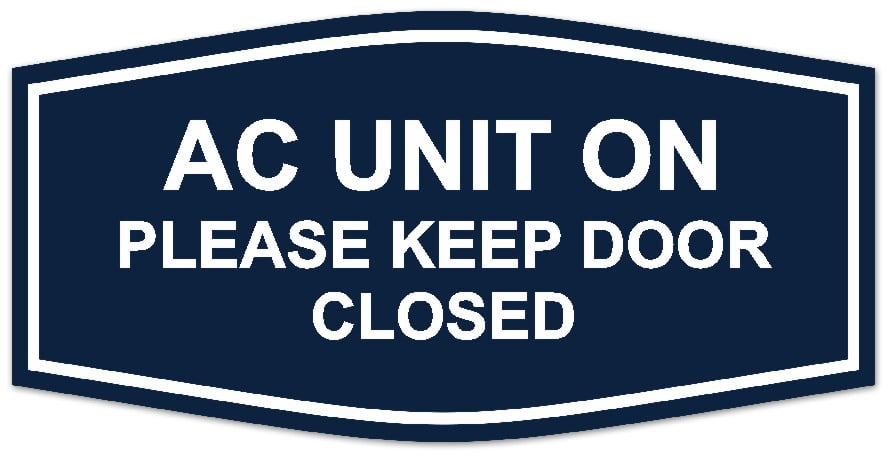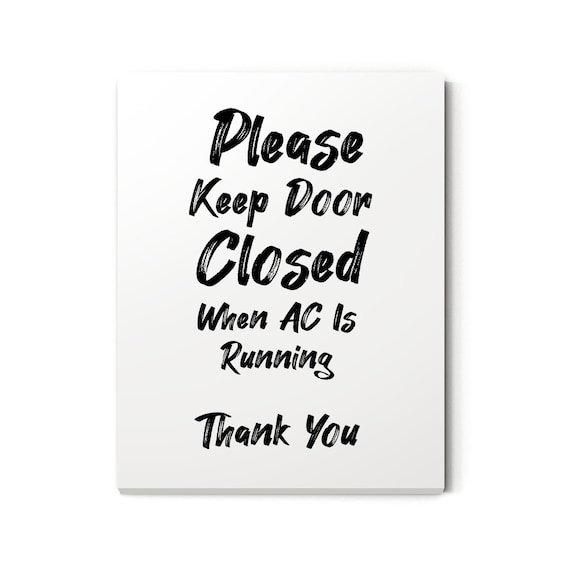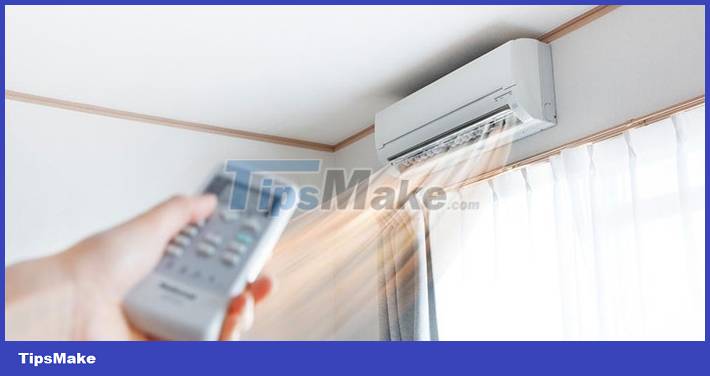Does Keeping Doors Closed Help Ac

In the sweltering heat of summer, the quest for energy efficiency becomes a household obsession. Amidst the whirring of air conditioners, a simple question emerges: Does closing doors actually help your AC unit run more efficiently and save you money? The answer, while seemingly straightforward, involves a complex interplay of factors including insulation, HVAC system design, and personal habits.
The impact of closing doors on AC efficiency hinges on several critical elements. Understanding these factors, such as the insulation quality of your home, the type and zoning of your AC system, and your personal cooling preferences, is vital. This knowledge empowers homeowners to make informed decisions about how to manage their indoor climate most effectively and economically. Let's delve into the specifics of how closing doors can affect your air conditioning.
The Science Behind Airflow and AC Efficiency
Air conditioners work by cooling a specific volume of air. This cooled air is then distributed throughout a designated zone, typically via a network of ducts. The efficiency of this process depends heavily on how well the system can maintain the desired temperature within that zone without being overwhelmed by external heat intrusion.
Closing doors effectively reduces the volume of space the AC needs to cool. This isolation potentially allows the unit to reach the target temperature faster and cycle on and off less frequently, leading to energy savings. However, this benefit is not universal and can be negated by other factors.
Insulation is Key
Proper insulation is paramount to any strategy aimed at improving AC efficiency. Walls, ceilings, and floors that lack adequate insulation allow heat to penetrate the building envelope, regardless of whether doors are open or closed. High-quality insulation acts as a barrier, minimizing heat transfer and allowing the AC to work more effectively.
According to the U.S. Department of Energy, improving insulation is one of the most cost-effective ways to reduce energy consumption. Without sufficient insulation, closing doors may offer minimal benefit as heat continues to infiltrate from poorly insulated areas.
The Impact of HVAC System Design
The design of your HVAC system plays a crucial role in determining the effectiveness of closing doors. Zoned systems, which allow for independent temperature control in different areas of the house, are specifically designed to take advantage of localized cooling strategies. In this case, closing doors in unoccupied zones is generally beneficial.
However, older, single-zone systems are designed to cool the entire house evenly. In these systems, closing doors can disrupt airflow and create pressure imbalances. This can lead to the AC working harder to compensate, potentially negating any energy savings and even damaging the unit over time.
Potential Drawbacks of Closing Doors
While the premise of reducing the cooling volume sounds logical, closing doors can sometimes have unintended consequences. Stagnant air, pressure imbalances, and increased stress on the AC unit are potential pitfalls to consider.
One significant drawback is the creation of stagnant air pockets. When a room is sealed off, air circulation is reduced, leading to uneven temperature distribution. This can result in some areas feeling uncomfortably warm, even while the overall thermostat setting remains the same.
Pressure Imbalances and AC Strain
In homes with central air systems, closing doors can create pressure imbalances between rooms. The AC unit draws air from the house through return vents. If doors are closed, the unit may struggle to pull sufficient air, leading to negative pressure in certain areas and positive pressure in others.
This pressure difference can strain the AC unit, forcing it to work harder to maintain the desired temperature. It can also lead to air leaking in from outside through cracks and crevices, further reducing efficiency and increasing energy costs.
Expert Opinions and Recommendations
HVAC professionals often offer nuanced advice on the best approach to managing airflow and AC efficiency. While the concept of closing doors might seem intuitive, experts emphasize the importance of considering the specific characteristics of your home and HVAC system. Consulting with a qualified HVAC technician is always recommended.
According to Energy Star, the best strategy is to ensure proper insulation and sealing throughout the house. Addressing these fundamental issues will yield more significant and lasting energy savings than simply closing doors.
"Closing doors can be a helpful strategy, but it's not a one-size-fits-all solution," says John Smith, a certified HVAC technician. "It really depends on the house's insulation, the type of AC system, and how the homeowner uses the space. A zoned system benefits more from closing doors than a single-zone system."
A Balanced Approach to Energy Efficiency
Ultimately, the most effective approach to optimizing AC efficiency involves a combination of strategies. Closing doors can be a useful tool, particularly in homes with zoned systems and adequate insulation. However, it should not be seen as a substitute for addressing fundamental issues like insulation and air sealing.
Homeowners should prioritize improvements that create a tighter building envelope, such as adding insulation and sealing air leaks. Regular maintenance of the AC unit, including cleaning or replacing filters, is also crucial for optimal performance. Smart thermostats can further enhance efficiency by automatically adjusting the temperature based on occupancy patterns.
Furthermore, consider the practical aspects of your daily life. Do you consistently occupy certain rooms while others remain unused? In such cases, strategically closing doors in those unoccupied spaces may contribute to energy savings. However, if the entire home is regularly used, focusing on broader efficiency measures will likely yield better results.
Looking Ahead: Smart Home Integration and Future Trends
As technology advances, smart home systems are playing an increasingly important role in energy management. Smart thermostats, connected sensors, and automated zoning systems offer homeowners unprecedented control over their indoor climate.
These systems can automatically adjust temperature settings based on occupancy, time of day, and even weather conditions. They can also learn your preferences over time, optimizing energy consumption without sacrificing comfort. The future of AC efficiency lies in the integration of these smart technologies to create more responsive and adaptive cooling solutions.
Ultimately, determining whether closing doors helps your AC comes down to a careful assessment of your home's specific characteristics and your individual needs. A holistic approach that combines smart technology, good habits, and expert advice ensures a cool, comfortable, and energy-efficient home.
